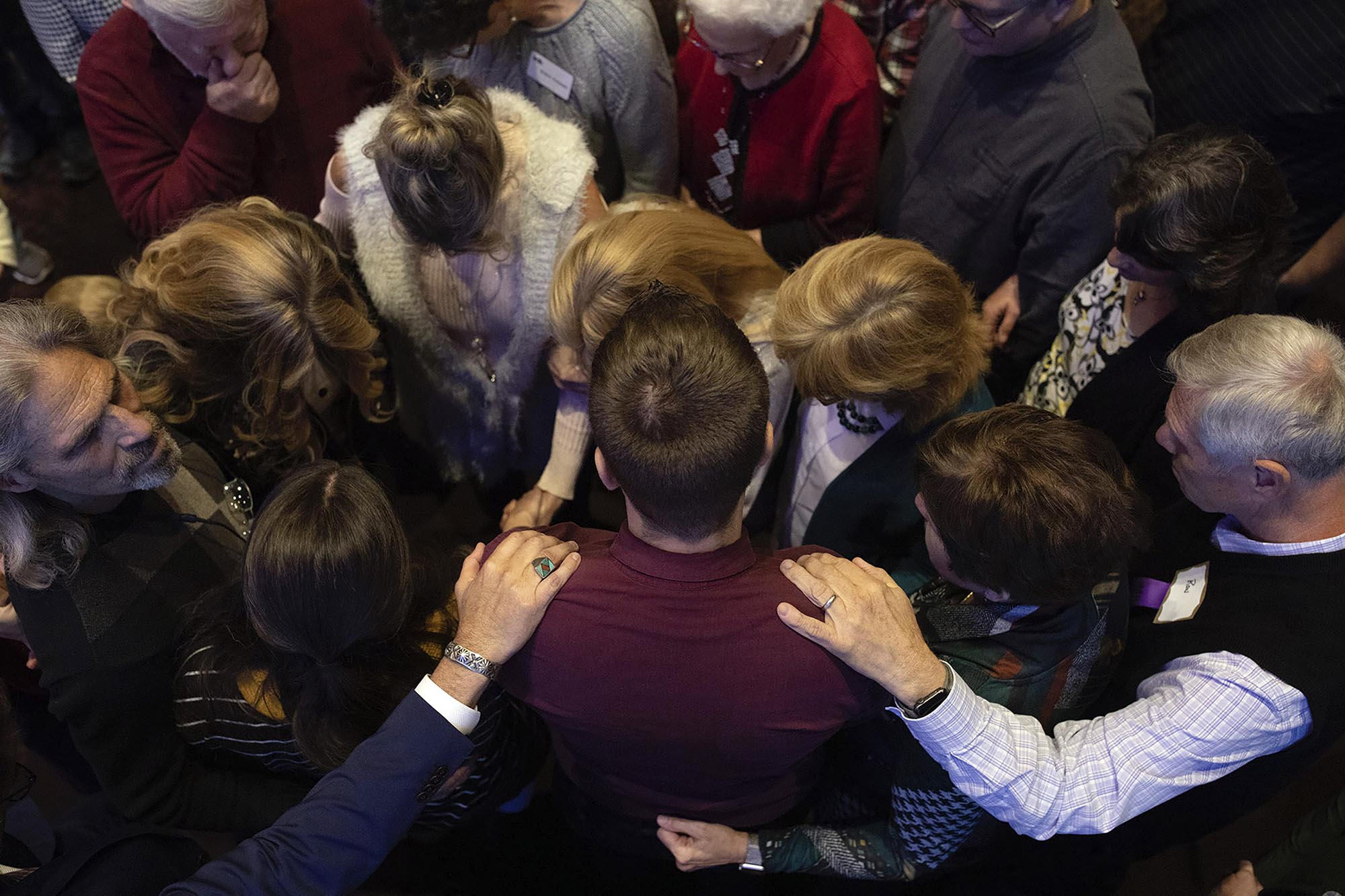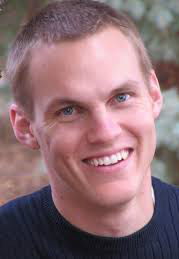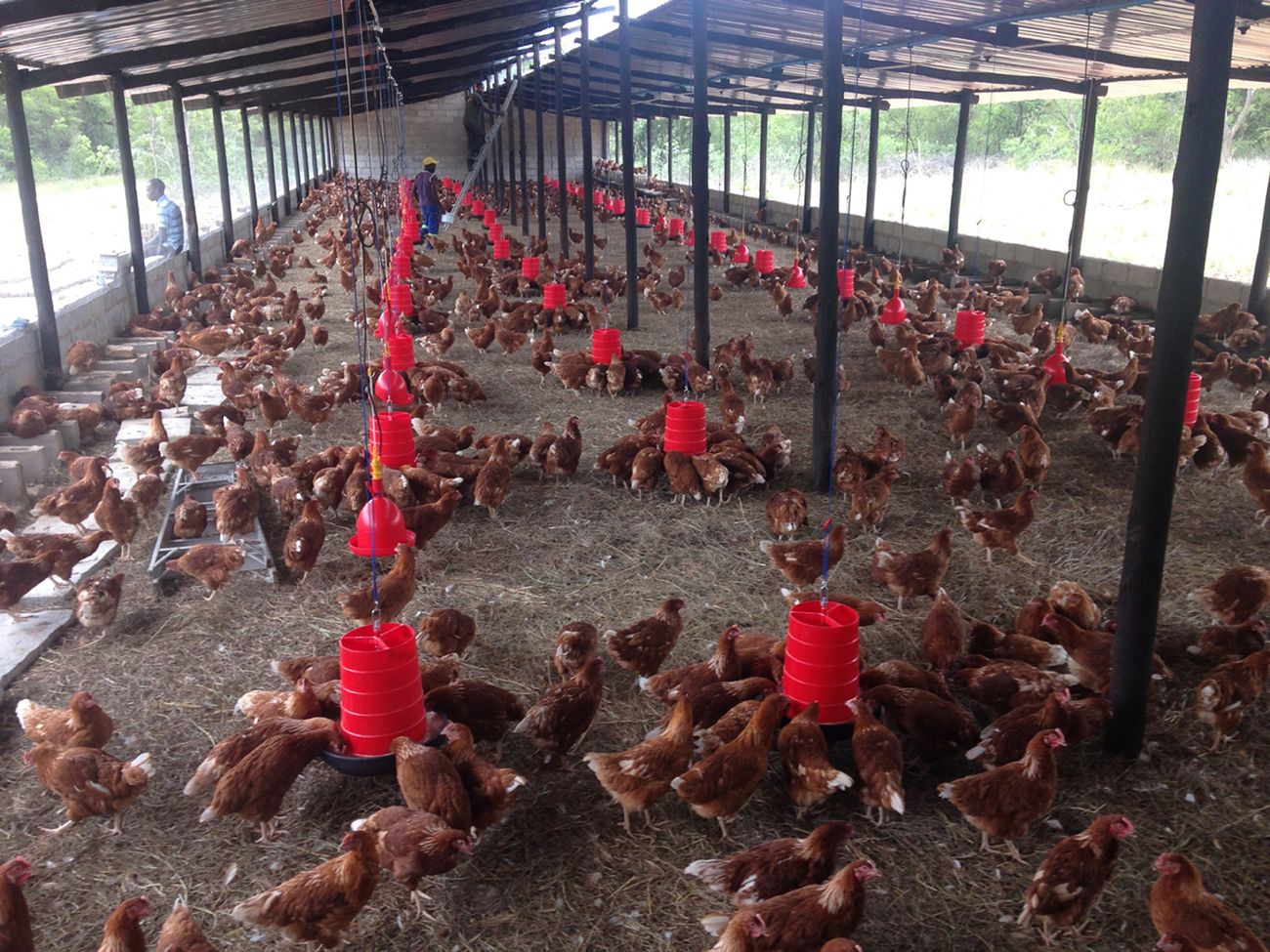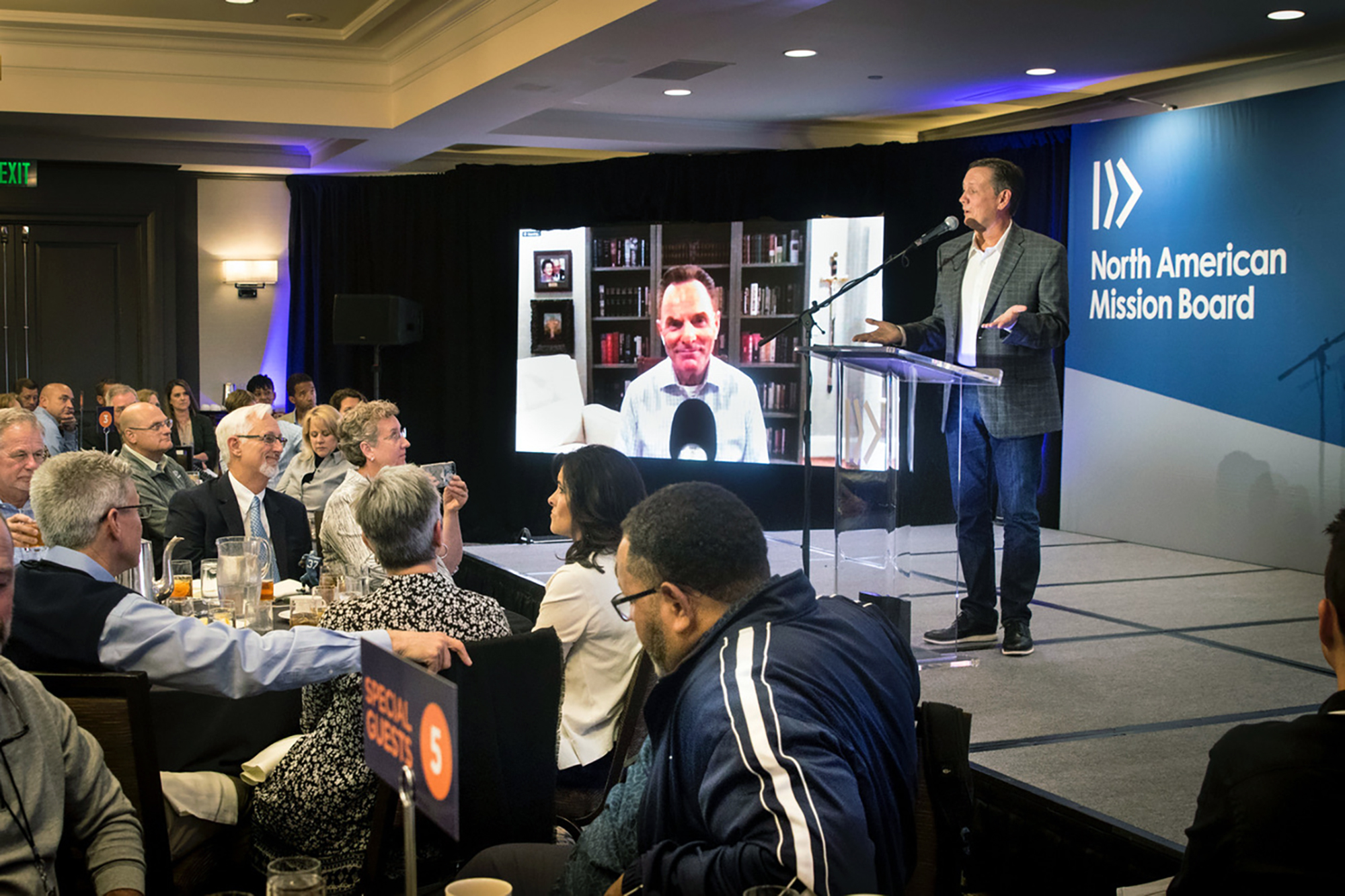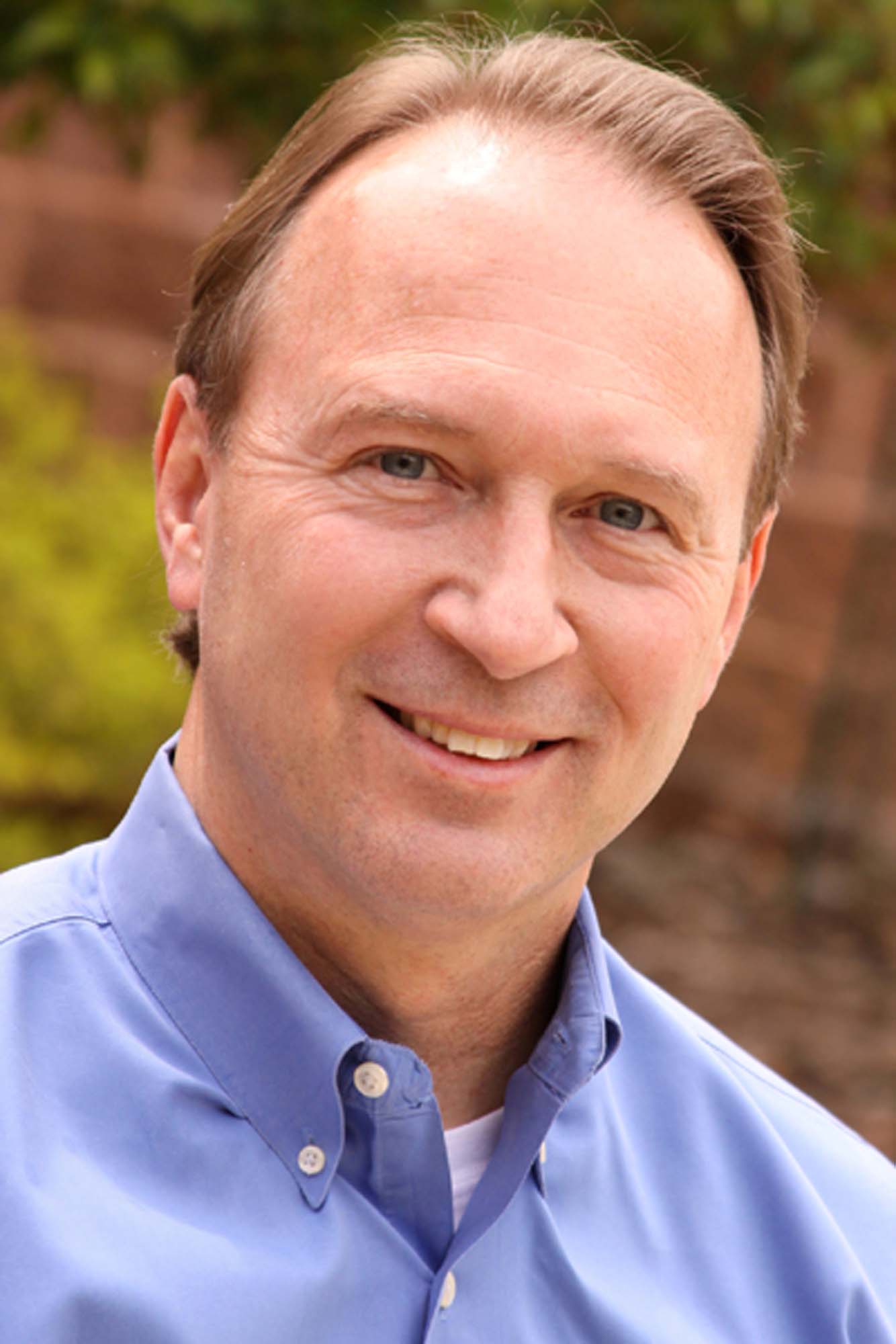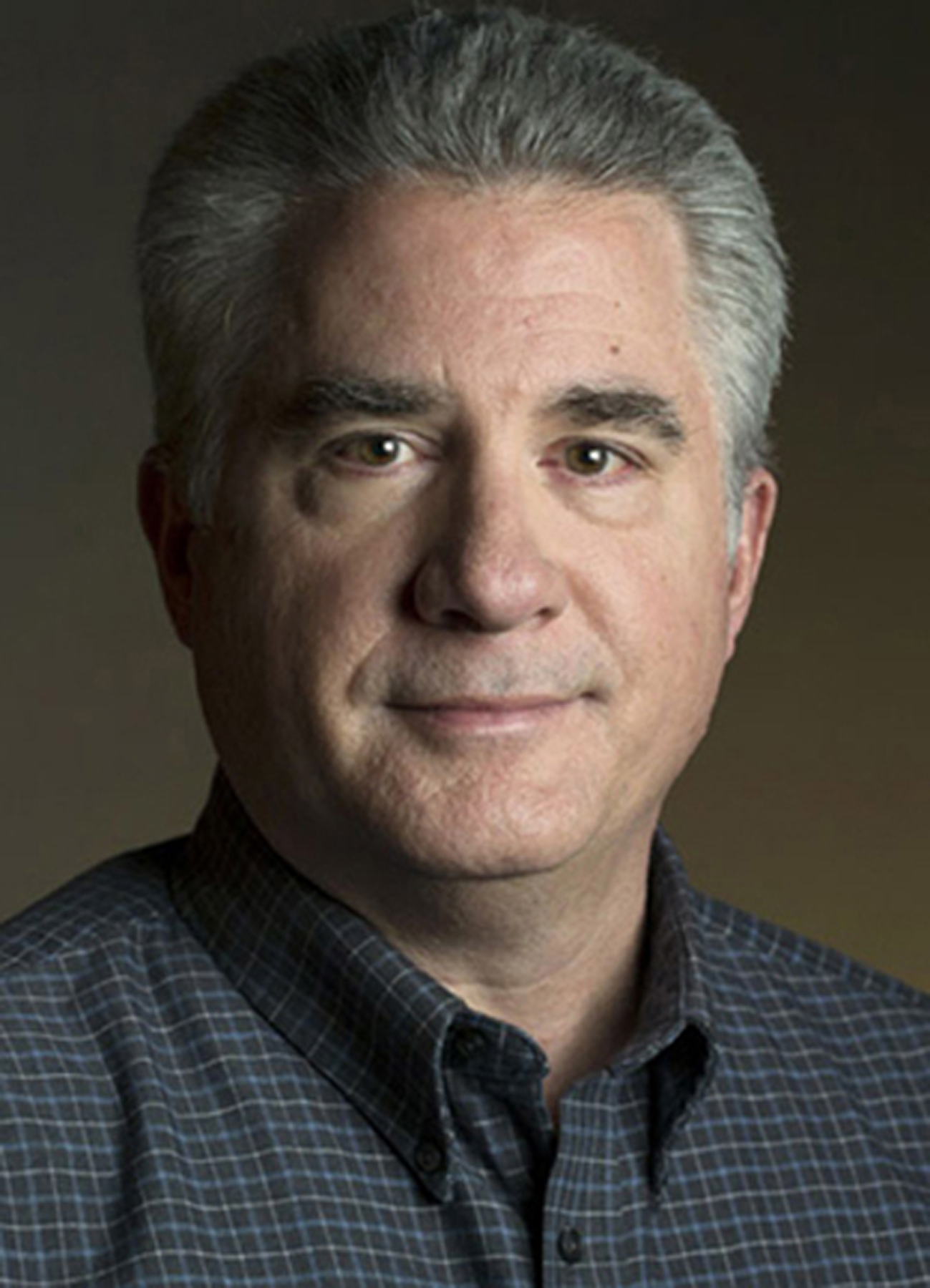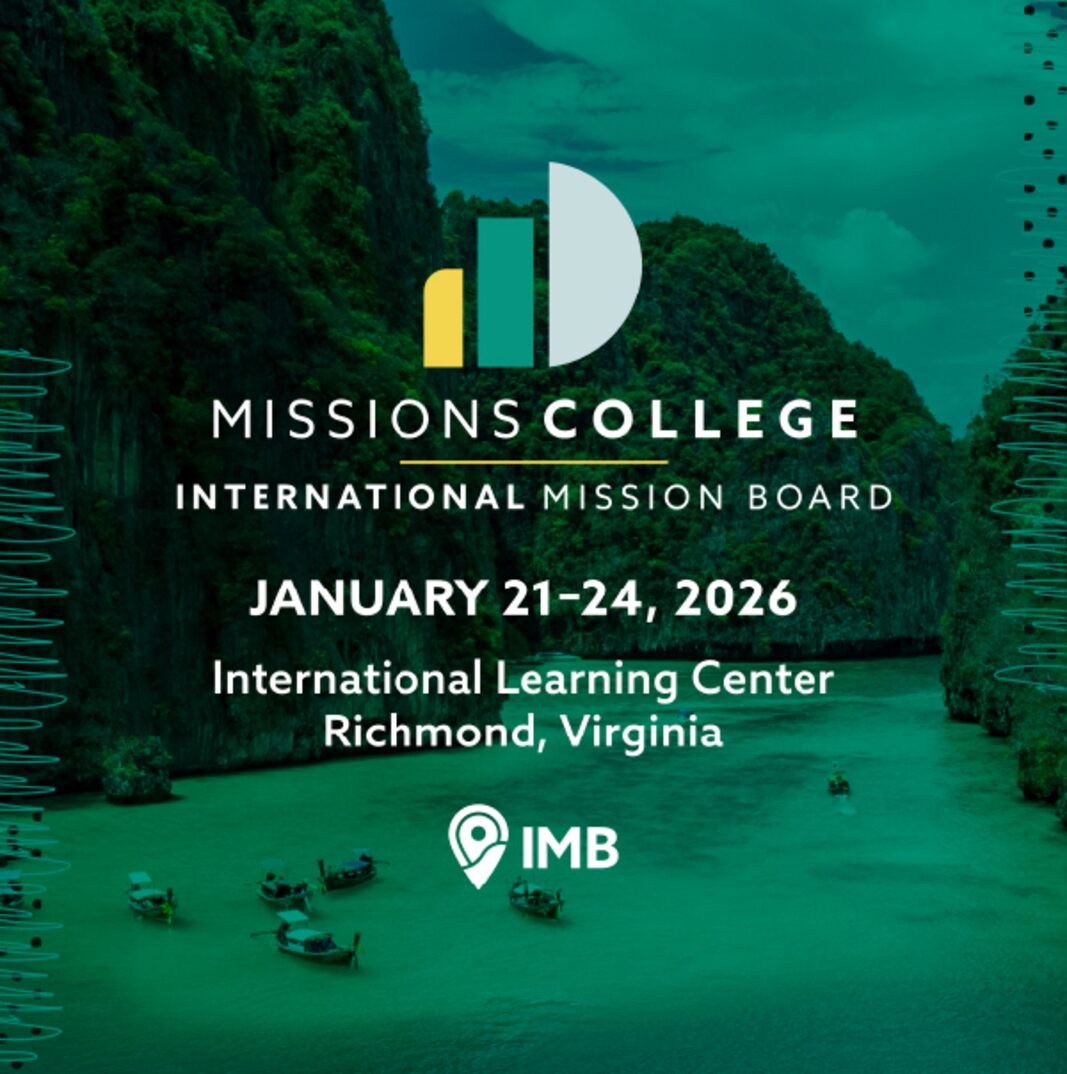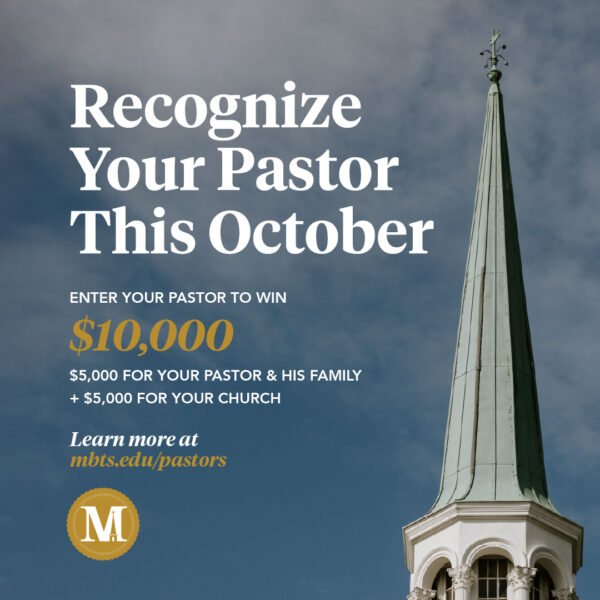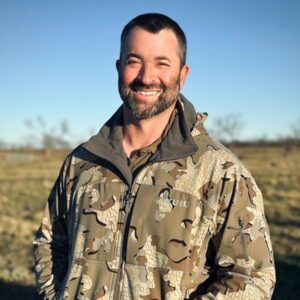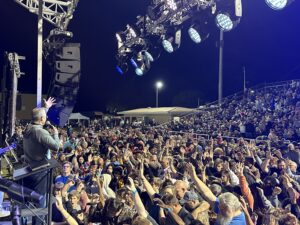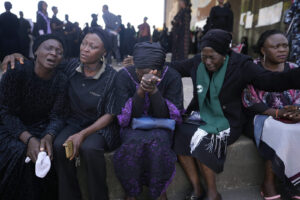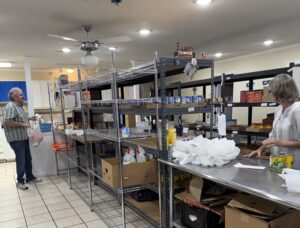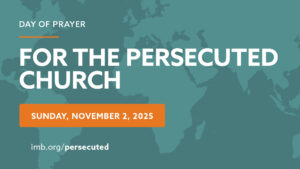
McALESTER, Okla. (BP)–Tom Anderson’s step isn’t as swift as it used to be, but he’s no less determined in his mission to reach Native Americans with the gospel by starting new Southern Baptist churches in southeastern Oklahoma.
“I can go up there, but it sure kills my knees,” Anderson said as he slowly scaled a set of stairs to a second-story apartment. With a church flyer and gospel tract in hand and an engaging smile, Tom walked past a small snarling dog standing in the breezeway and invited the resident to attend the new church meeting in the local chamber of commerce building.
“I’m 68 years old and I could have retired some years back, but I enjoy doing this work. And in fact if my health continues I am going to continue doing this work as long as I can,” Anderson said.
As Southern Baptist church planting missionaries, Tom and his wife, Rhoda, put in a lot of legwork — literally. Whether it’s going door-to-door in an apartment complex, prayerwalking a neighborhood or driving 150 miles one way to preach and play the piano at a newly started church, church planting requires some long hours and a lot of patience. But Tom and Rhoda wouldn’t have it any other way.
The Andersons are among the missionaries featured in the 2002 Week of Prayer for North American Missions, March 3-10.
Starting new Southern Baptist churches in southeastern Oklahoma, an area steeped in Native American culture, has its challenges. And it’s those challenges, Anderson said, that compel him to stay on mission.
Southeastern Oklahoma is home to more than 250,000 Native Americans, 98 percent of whom are unchurched. The Andersons minister among five Native American nations: descendants of the Cherokees, Creek, Choctaw, Chickasaw and Seminole who resettled in the area in the early 1800s.
Forced from their homeland throughout the United States following Congress’ passage of the Indian Removal Act to make room for American expansion, these tribes lost nearly a fourth of their populations to epidemics such as cholera, small pox and measles.
Anderson understands the challenges and knows the importance of Southern Baptist mission work among Native Americans because he is one.
“I’m a product of Southern Baptist mission work,” said Anderson, a Choctaw Indian. “I’m a product of missions and I believe in it.”
Anderson became a Christian when he was 14 at a revival service in his Choctaw Indian village in southeastern Oklahoma where a Native American Southern Baptist missionary was preaching.
“The American Indian is a religious person,” Anderson said. “By that I mean he has his own religion already. When you come to him with the idea that Christianity is the better way of life, and that you want to start a church in the area to reach those individuals, they have a fear of their culture being lost.
“We see the results of their religion, that it doesn’t bring joy or peace or any kind of security to them. And that is evidenced by the fact that alcoholism is a plague that bothers our tribes. Drug abuse is also very prevalent.”
And with the suicide rate among Native Americans four times the national average, the eternal hope that comes through knowing Jesus Christ as Savior is a message desperately needed by the Native American community.
Anderson said that although Indians have increasingly assimilated over the years into American culture, there is a widely held misperception among Native Americans that Christianity is still the “white man’s religion.”
“When you first confront a Native American with the claims of Christ on his life, there’s a sense of distrust,” he said.
That’s why Anderson senses a personal responsibility for taking the gospel to his people.
“I look at my own life and I see where the change has come, from where my people were religious,” he said. “They did have a religion, but we didn’t have Christ. So, I just use my own life as a testimony as I tell them about Jesus. … I simply share with them the way that they can be changed. And that’s not through rituals. It’s not through anything that man does. But it’s all through what God will do for you if you by faith turn to him.”
The Andersons have been serving as church planting missionaries in southeastern Oklahoma since 1995. Before returning home seven years ago, the couple spent much of their marriage as church planters in California, Texas and Montana. Over the years, they have helped start 12 new churches, nine of which are in Oklahoma.
They have started new churches in homes, vacant fire departments, a chamber of commerce building and even a storage facility used on a county fairground each fall to showcase live chickens and rabbits.
“We start churches wherever,” Anderson said. “From that, people reach people.”
Anderson also works with about 90 churches across four associations assisting them in church planting ventures and mentoring young pastors, an assignment that totals about 65,000 miles each year on his vehicle. “My task is to help established churches become sponsoring churches of missions,” he said.
Anderson’s strategy is simple yet requires a keen awareness of where God is leading.
“Keep your eyes open, and when you see God at work, that’s your invitation to join him,” he said. “Basically all through my ministry that’s been my philosophy. God is going to reveal where he’s at work.
“We could have a bunch of methods, but if we don’t have love and compassion, who will go? Here, Lord, send me.”
For Anderson, that means being available 24 hours a day, seven days a week. For example, when he got a call late one Saturday night from a man contemplating suicide, he visited him right away.
“Later on he became a Christian, and we baptized him,” Anderson said. “Today he is a deacon in a church and praying about surrendering to the ministry full time.”
Anderson readily admits his ministry would not be possible without Rhoda.
“One of the stabilizing things in the ministry for me is my wife,” he said. “She’s a definite part of the ministry, and so we’re a team.”
Rhoda often serves as pianist for the new churches they help start. She also teaches the Choctaw language in the public schools and tutors adults how to read and write English.
“Tutoring in literacy does give me the opportunity to witness for Jesus Christ because I can use the Scripture,” Rhoda said.
Despite the long days and weekends on the road, Tom and Rhoda show no signs of tiring of the work to which God has called them. “I couldn’t be happy doing anything else,” he said.
After moving back to Oklahoma seven years ago, one of the first things Anderson did was buy a fishing rod. Since then, he’s used it just once. “There’s just not enough time in the day for me,” Anderson said during a sermon he preached last fall at Covenant Baptist Church, a new church he helped start in July in Durant, Okla.
At the beginning of the service, Anderson presented a young girl her baptismal certificate. He said later that each time he baptizes a child he is reminded of Southern Baptists’ missions legacy among Native Americans — a legacy he has perpetuated.
“Some of these youngsters that we minister to, and they get saved, may become missionaries, preachers or lay leaders in their church,” Anderson said. “To me that’s worth it all.”
–30–
(BP) photos posted in the BP Photo Library at https://www.bpnews.net. Photo titles: NATIVE AMERICAN WITNESS, LITERACY OUTREACH and AT BROKEN ARROW.



